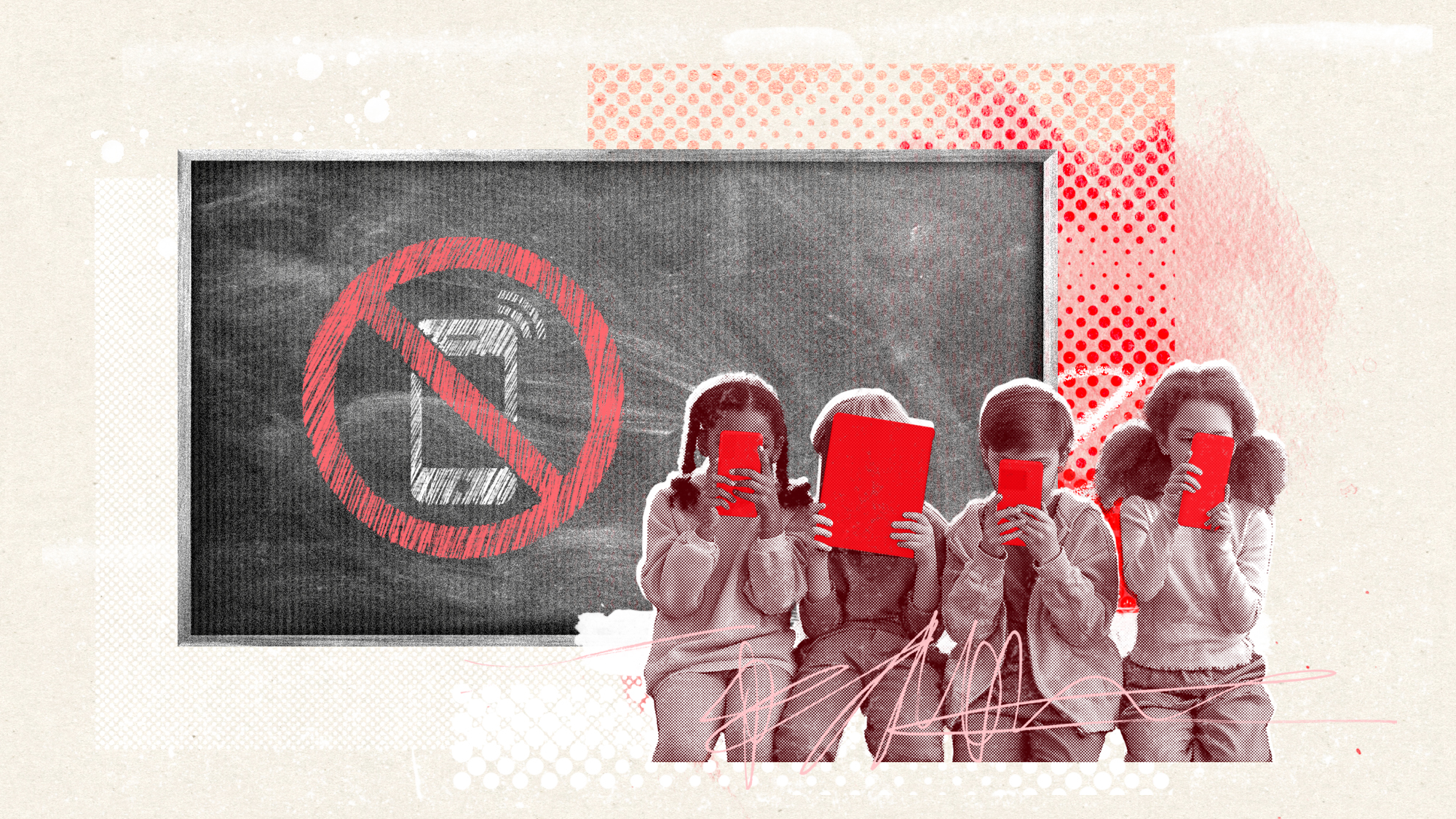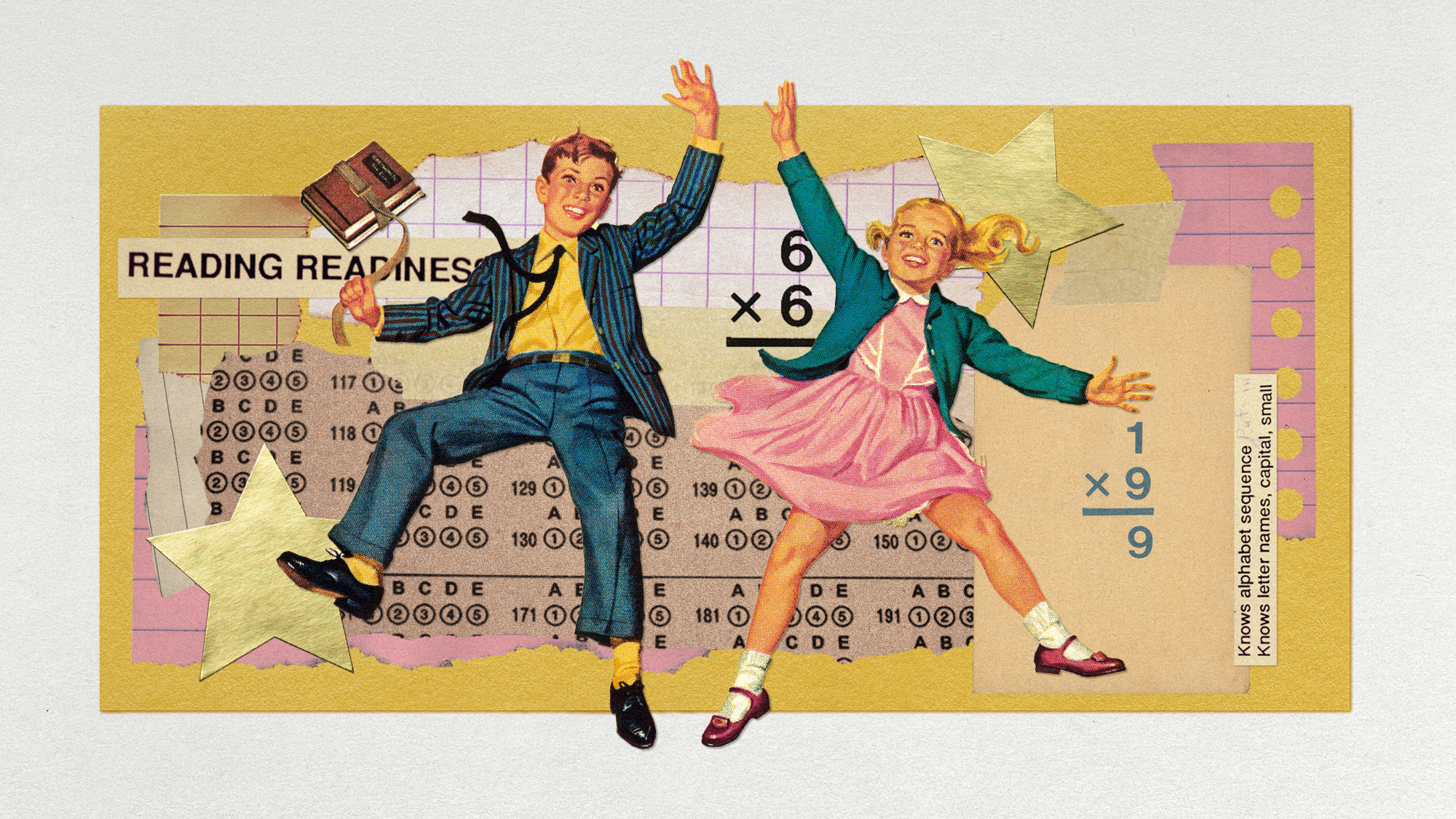How incel culture is on the rise in UK schools
Teachers report students to counter-terrorism Prevent scheme amid 'scourge' of misogyny and sexual abuse

A free daily email with the biggest news stories of the day – and the best features from TheWeek.com
You are now subscribed
Your newsletter sign-up was successful
Teachers are battling a increasingly violent strain of misogyny in schools, amid the growth of the so-called "incel" subculture.
One in six boys aged six to 15 have a positive opinion of Andrew Tate, a social media influencer and self-styled "king of toxic masculinity", according to a YouGov Children's Omnibus survey last week. The former kickboxer has been charged in Romania with rape and human trafficking, and forming an organised crime group to exploit women, which he denies. Although he was banned from most social media platforms last year, schools across the country told The Observer in January that Tate was a "hugely familiar figure" to their pupils.
Tate's recent media coverage has "sparked conversations around incel culture", said the Evening Standard. Although Tate does not identify as "involuntarily celibate", many of his fans are "lonely young men" who do.
The Week
Escape your echo chamber. Get the facts behind the news, plus analysis from multiple perspectives.

Sign up for The Week's Free Newsletters
From our morning news briefing to a weekly Good News Newsletter, get the best of The Week delivered directly to your inbox.
From our morning news briefing to a weekly Good News Newsletter, get the best of The Week delivered directly to your inbox.
Last May, the Department for Education said there had been a "significant increase" in teachers reporting pupils to the government counter-terrorism scheme Prevent over "mixed or unclear ideologies", including "inceldom". According to Schools Week, government figures showed such referrals "leapt" from 193 in 2016-17, to 1,071 in 2019-20.
What is incel culture?
The incel movement is an online subculture involving men who feel unable to have sex or find love, and express hostility and extreme resentment towards women. Research into a leading incel forum found a "community of angry, belligerent and unapologetic" men that pose a "clear and present danger" to women and an "emerging threat" to children, said Sky News last year.
The incel subculture "began in the 1990s on internet forums", said The Times, which are "often characterised by discussions of resentment, hatred, misogyny and racism". It "turned violent" in 2014, when Elliot Rodger – "the ideological founder" – stabbed six people to death and injured 14 others in the University of California, before killing himself. Rodger left a 137-page "manifesto" and YouTube video, which claimed that his motivation was to punish women for rejecting him.
In 2020, a government counter-extremism commission called incel subculture a "new threat". Britain's most senior counter-terrorism officer, Neil Basu, warned MPs that young people were being groomed online for incel attacks.
A free daily email with the biggest news stories of the day – and the best features from TheWeek.com
How did it go mainstream in the UK?
In August 2021, Jake Davison became "a cause célèbre for women-hating 'incel' extremists", said The Times, after the 22-year-old shot and killed five people (including his mother and a three-year-old girl) and injured two others in Plymouth, before fatally shooting himself. Davison held "strongly misogynistic views", the inquest jury heard.
Incels "flocked" to Davison's YouTube channel before it was removed, The Times reported. The Centre for Countering Digital Hate (CCDH), a British non-profit organisation, warned that his videos were being used as a "rallying point" for incel extremists. In the nine months after his death, the number of visits to the largest UK incel forums increased more than fivefold, according to web traffic analysis by The Times and the CCDH. Users hailed Jake Davison as a "hero".
A study published in October 2021 found that there was a 6.3% chance of YouTube suggesting an incel-related video within five 'hops' of a non-incel related video. The findings "paint an alarming picture of online radicalisation", said the report.
Owen Jones, director of education at the charity Hope Not Hate, told Schools Week that incel narratives were "becoming more prevalent" at schools. Some have started holding parents' evenings on incel "culture", with others running awareness courses for staff about how to spot terminology.
What is the link with misogyny?
In April last year, a poll by the NASUWT teachers' union found that seven in 10 female teachers had been victims of misogyny in school. The union said it was worried about lack of government initiatives to tackle the growing incel subculture.
In July, the Commons Women and Equalities Committee published a report concluding that sexual harassment and abuse of female pupils and staff was an "scourge" in schools. "Many young people are being influenced and potentially radicalised into dangerous misogynistic ideology," said Andrea Simon, director of the End Violence Against Women Coalition charity, in July.
"Incels are not lone wolves or socially isolated," Imran Ahmed, chief executive of the CCDH, told Sky News last year. The organisation found "a reflexive dynamic between misogynistic communities online and incels", he said.
"They argue with each other, support each other, share ideas, promote each other's lexicon and values," said Ahmed. "In short, they are brothers-in-arms in a war against women."
Harriet Marsden is a senior staff writer and podcast panellist for The Week, covering world news and writing the weekly Global Digest newsletter. Before joining the site in 2023, she was a freelance journalist for seven years, working for The Guardian, The Times and The Independent among others, and regularly appearing on radio shows. In 2021, she was awarded the “journalist-at-large” fellowship by the Local Trust charity, and spent a year travelling independently to some of England’s most deprived areas to write about community activism. She has a master’s in international journalism from City University, and has also worked in Bolivia, Colombia and Spain.
-
 How the FCC’s ‘equal time’ rule works
How the FCC’s ‘equal time’ rule worksIn the Spotlight The law is at the heart of the Colbert-CBS conflict
-
 What is the endgame in the DHS shutdown?
What is the endgame in the DHS shutdown?Today’s Big Question Democrats want to rein in ICE’s immigration crackdown
-
 ‘Poor time management isn’t just an inconvenience’
‘Poor time management isn’t just an inconvenience’Instant Opinion Opinion, comment and editorials of the day
-
 The pros and cons of banning cellphones in classrooms
The pros and cons of banning cellphones in classroomsPros and cons The devices could be major distractions
-
 School phone bans: Why they're spreading
School phone bans: Why they're spreadingFeature 17 states are imposing all-day phone bans in schools
-
 Schools: The return of a dreaded fitness test
Schools: The return of a dreaded fitness testFeature Donald Trump is bringing the Presidential Fitness Test back to classrooms nationwide
-
 Send reforms: government's battle over special educational needs
Send reforms: government's battle over special educational needsThe Explainer Current system in 'crisis' but parents fear overhaul will leave many young people behind
-
 Education: Can public schools be religious?
Education: Can public schools be religious?Feature A Supreme Court seems ready to rule in favor of religious charter schools in Oklahoma, which could reshape public education
-
 America's academic brain drain has begun
America's academic brain drain has begunIN THE SPOTLIGHT As the Trump administration targets universities and teachers, educators are eying greener academic pastures elsewhere — and other nations are starting to take notice
-
 Schools' Send crisis: how can it be fixed?
Schools' Send crisis: how can it be fixed?Today's Big Question Government urged to reform support for children with special educational needs and disabilities and save councils from bankruptcy
-
 Unschooling: the radical education trend raising eyebrows
Unschooling: the radical education trend raising eyebrowsUnder the radar Some parents are letting their children lead their education